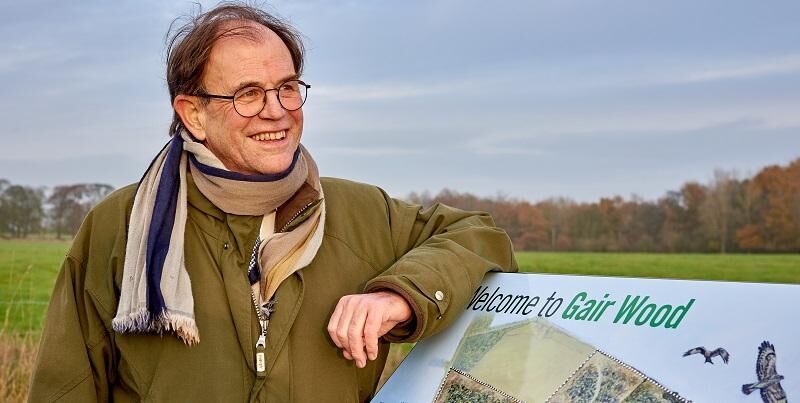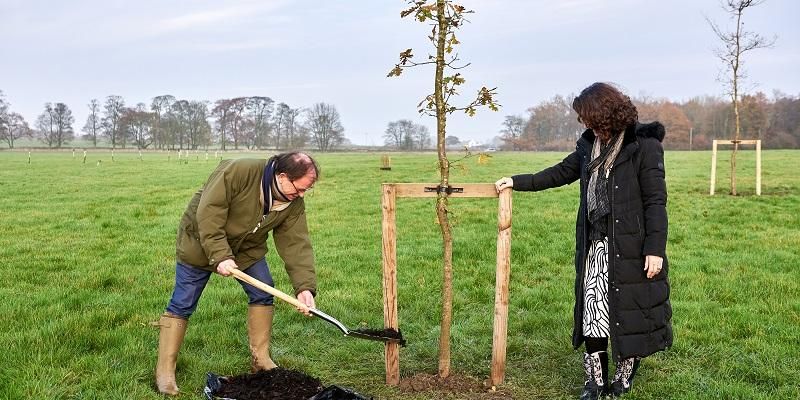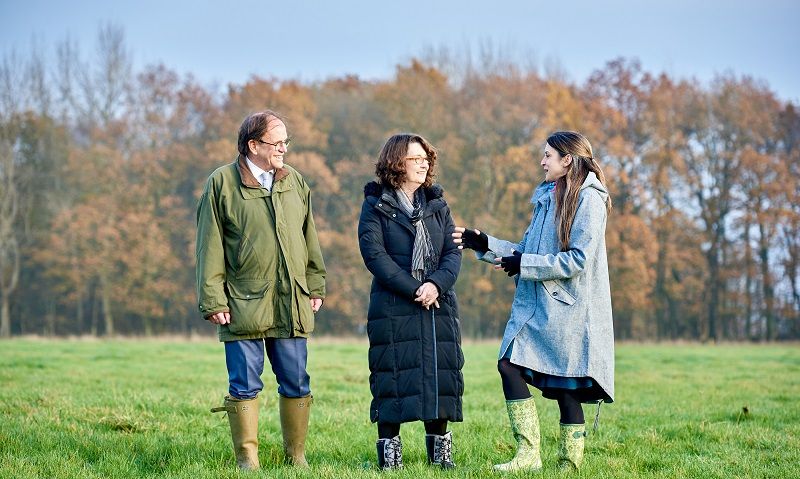
Planting for a new woodland has begun on land owned by the University of Leeds on the northern edge of the city.
The first tree, an oak, was put into the ground by Roger Gair, who worked at the University for more than 40 years – 20 of them as Secretary – and retired in 2021. The woodland, called Gair Wood, takes his name.
He said: “This means an awful lot to me. The wood will benefit the environment, the academic work of the University and the people of Leeds, and I am deeply honoured to have my name associated with it.”

Following the ceremonial planting, the focus switches to the mass planting which will happen in the New Year - and the public can get involved.
Situated near to Golden Acre Park at Bramhope, the 37-hectare site - the size of 37 rugby pitches - will eventually be home to 66,000 new trees, a mixture of broadleaf species including oak, elder, hornbeam, wild cherry and silver birch.
Until the young trees have become well established, public access will be restricted, with increasing levels of access over the next five years as the saplings develop. The woodland will be connected by paths to the Leeds Country Way.
Professor Simone Buitendijk, Vice-Chancellor of the University of Leeds, said: “Roger was a fantastic servant of the University for more than 40 years, calmly guiding its growth and development through periods of great change.
“Naming the woodland after him is a fitting way for our academic and student communities to say ‘thank you’ for a career devoted to supporting the University.
“The Gair Wood project also embodies the philosophy of the University. It is the result of collaboration with partner organisations, and it will be a fantastic resource for the public to enjoy for decades to come and for our researchers to use to further scientific study into climate change.”
Volunteer planters
People who volunteer to help with the planting do not need any experience and will be shown what to do. However, they need to book on to one of the planting sessions - to be held during January and February - using Eventbrite.
The public will plant around 5,000 of the new trees. The rest will be done by a team of commercial planters.
Increasing Yorkshire’s tree cover
Gair Wood will contribute to the target set by the White Rose Forest, the community forest for West and North Yorkshire, for 7 million more trees by 2025.
Trees play a vital role in taking carbon dioxide out of the atmosphere. They also help clean and cool the air around them and encourage more people to be active outdoors.
Developing Gair Wood is also part of the University’s Climate Plan through which the University is aiming for net zero greenhouse gas emissions by 2030.

Dr Cat Scott, University Academic Fellow based in the School of Earth and Environment at Leeds and academic lead for Gair Wood, said: “The University is exploring its capacity to actively take carbon out of the air by growing new trees on its land.
“Creating this woodland will allow us to explore the impacts, in real-time, of tree planting as a nature-based solution to climate change. Researchers with a wide range of expertise are coming together to assess changes to diverse aspects of the site like the composition of the soil, the species of wildlife present, and local air quality as this new woodland evolves.”
The woodland will also connect existing habitats that have become fragmented, allowing wildlife to move to find food, mates and new locations to live. Students have already conducted baseline measurement of plants, insects, birds and mammals and these will be tracked to monitor how these change over the coming years.
Gair Wood has been developed as the result of a partnership between the University and its Estates Team and Sustainability Service, the White Rose Forest and the United Bank of Carbon, an environmental charity that protects, plants and restores trees and forests. There has also been support from Leeds City Council and the Forestry Commision.
The project is funded by the White Rose Forest through Defra’s Nature for Climate Fund.
Further information
Fore more details on Gair Wood please, please contact David Lewis in the Press Office at the University of Leeds by email on pressoffice@leeds.ac.uk.
Images: Vic De Jesus/University of Leeds